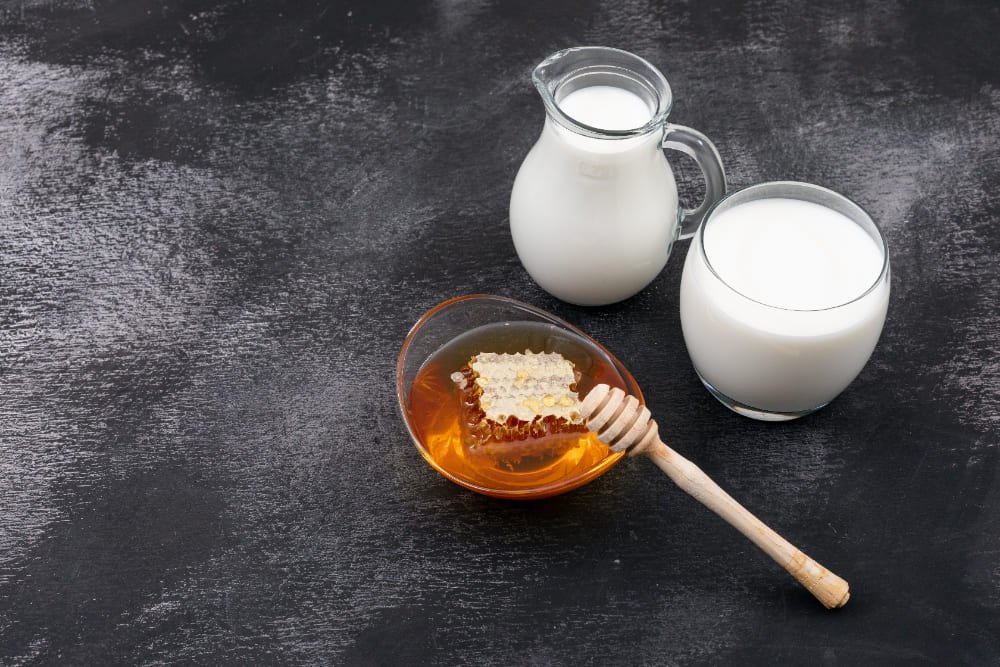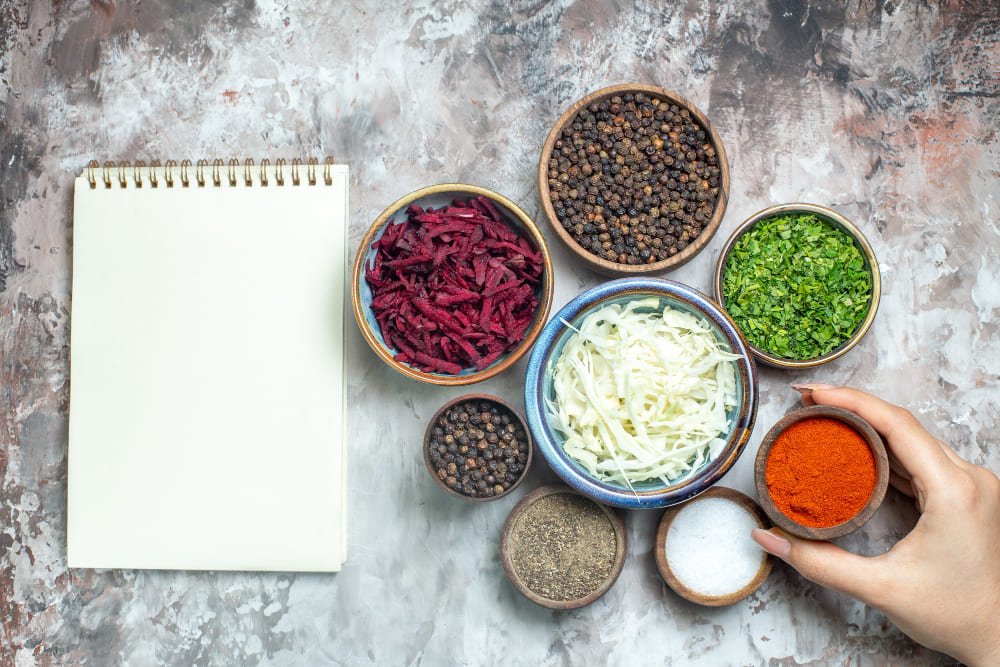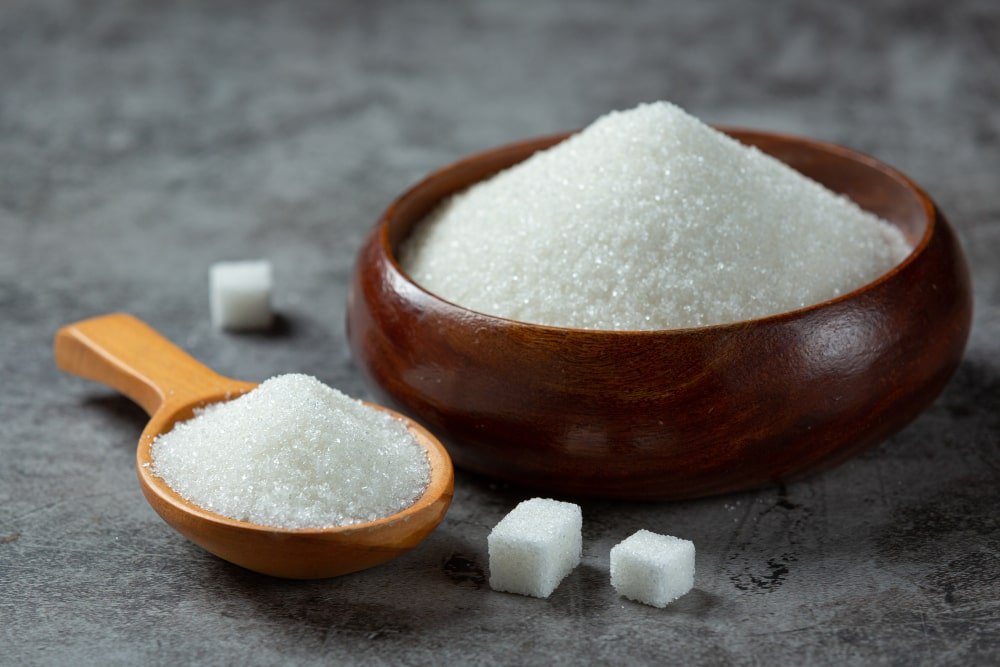Sugar is a major part of our daily diet, and it can be found in almost everything we consume. From cookies and cakes to sodas and fruit juices, sugar is added to enhance the taste of our favorite foods. However, too much sugar in our diet can lead to various health problems such as obesity, heart disease, and diabetes. That’s why it is important to find ways to reduce our sugar intake for a healthier lifestyle.
Most people may think that reducing sugar intake means giving up on all their favorite treats, but that’s not entirely true. There are simple, easy-to-follow ways to cut back on sugar without sacrificing taste. Today, we will learn 10 simple ways to reduce sugar intake and improve our overall well-being.
May also need: 12 Best Foods to Improve Digestion Naturally
10 Simple Ways to Reduce Sugar Intake
1. Read Food Labels
One of the first steps to reducing sugar intake is to become more aware of what we are putting into our bodies. Most packaged foods have a nutrition label that lists the amount of sugar in each serving. So, make it a habit to read food labels before purchasing any packaged product and opt for foods with less added sugars.
For example, instead of choosing a sugary cereal for breakfast, opt for oatmeal topped with fresh fruits. This simple switch can significantly reduce your sugar intake and add more nutrients to your diet.


2. Swap Sugary Drinks for Water
Sodas, energy drinks, and other flavored beverages are loaded with added sugars that can quickly add up to our daily sugar intake. Instead of reaching for a sugary drink, opt for plain water or infused water with fresh fruits or herbs. Not only will this help reduce sugar intake, but it will also keep you hydrated and refreshed.
Most people may not realize it, but drinks like fruit juices and sports drinks also contain high amounts of sugar. It is always better to opt for whole fruits rather than juice or choose a healthier alternative such as coconut water or homemade smoothies.

3. Limit Processed Foods
Processed foods are often loaded with added sugars to enhance flavor and increase shelf life. These include packaged snacks, breakfast cereals, sauces, and dressings. By limiting the intake of processed foods and opting for whole, natural foods, we can significantly reduce our sugar intake.


4. Choose Low-Sugar Alternatives
It is essential to choose low-sugar alternatives whenever possible. For example, instead of using regular table sugar, opt for natural sweeteners like honey or stevia. These alternatives are lower in calories and have a lower glycemic index which means they won’t cause a spike in blood sugar levels.
Another great alternative is using unsweetened plant-based milk such as almond or coconut milk instead of dairy milk. Not only do they contain less sugar, but they also provide additional nutrients.


5. Add Flavor with Herbs and Spices
Instead of relying on sugar to add flavor to our meals, try using herbs and spices. Yes, herbs and spices add flavor to our food without adding any extra sugar or calories. So, the next time you’re cooking, try using herbs like basil, thyme, or spices like cumin, and paprika instead of adding a sugary sauce.
You’ll be surprised by how much flavor these natural ingredients can add to your dishes without adding any extra sugar. Plus, they also have added health benefits like anti-inflammatory and antioxidant properties.


6. Eat Whole Fruits
Whole fruits are an excellent way to satisfy our sweet tooth without consuming excessive amounts of sugar. They contain natural sugars that are healthier for our bodies and also provide essential vitamins, minerals, and fiber.
Instead of reaching for a candy bar, try snacking on some fresh berries or a piece of whole fruit like an apple or banana. You’ll still get the sweetness you crave without the added sugars.


7. Be Mindful When Eating Out
Eating out can be challenging when trying to reduce sugar intake as most restaurants tend to use high amounts of sugar in their dishes. It’s essential to be mindful when ordering and opt for dishes with fewer sauces or dressings.
It’s also a good idea to ask for sauces and dressings on the side, so you can control the amount you consume. Another tip is to replace sugary sides like fries with healthier options like steamed or roasted vegetables.

8. Prepare Meals at Home
Preparing meals at home allows us to have more control over what goes into our food. It also gives us the freedom to experiment with healthier ingredients and alternatives.
By cooking at home, we can reduce sugar intake by avoiding processed foods and adding more nutrient-rich ingredients to our meals. It’s a great way to take charge of our health and well-being.


9. Snack Smartly
Snacking is a common habit for many people, but it can also lead to consuming excessive amounts of sugar. Instead of reaching for high-sugar snacks like cookies or chips, opt for healthier options like nuts, seeds, or fresh fruits.
These snacks not only provide natural sweetness but also contain essential nutrients that will keep us feeling satisfied for longer periods. If you’re craving something sweet, try making your healthy snacks at home using natural sweeteners like dates or dried fruits.


10. Be Patient and Make Small Changes
Reducing sugar intake may not be an easy task, especially if we are used to consuming high amounts of sugar in our diet. It’s essential to be patient and make small changes gradually.
Instead of cutting out all sugary foods at once, try reducing your sugar intake little by little and replacing them with healthier options. This will not only make the transition smoother but also make it more sustainable in the long run. Remember, a healthy lifestyle is all about balance, and making small changes can lead to big results over time.
My Experience
Reducing my sugar intake was a challenging yet rewarding journey. Initially, I found it difficult to resist sugary snacks and drinks, as they had been a regular part of my routine. However, I started by making small changes, like switching soda for infused water and opting for whole fruits instead of desserts. Over time, these small adjustments became habits, and I noticed a significant difference in how I felt.
Not only did I have more energy throughout the day, but I also experienced fewer cravings and mood swings. Preparing meals at home became an enjoyable process, allowing me to experiment with new recipes while controlling the ingredients.
Though it took patience and commitment, the overall improvement in my health and well-being was worth it. I encourage others to give it a try and see for themselves the positive impact of reducing sugar intake. With small changes and a little patience, it is possible to live a healthier life with less sugar.
Final Words
In conclusion, reducing sugar intake is crucial for our overall health and well-being. By following these tips and making small changes, we can lower our sugar consumption and improve our quality of life.
If you are struggling to cut back on sugar, remember that it takes time and effort, but the benefits are well worth it. Be kind to yourself and take time to celebrate the small victories along the journey. With determination and perseverance, we can all achieve a healthier lifestyle with less sugar in our diet.
Frequently Asked Questions
Is it healthy to completely cut out sugar from my diet?
It is not necessary or recommended to completely eliminate sugar from your diet, as our bodies need some amount of natural sugars for energy. However, reducing excessive sugar intake is beneficial for our health.
How can I satisfy my sweet tooth without consuming too much sugar?
Try incorporating natural sweeteners like dates, honey, or maple syrup into your meals or snacks. You can also opt for whole fruits, which contain natural sugars and essential nutrients.
Can I still have desserts if I am reducing my sugar intake?
It is okay to indulge in desserts occasionally but try making healthier versions at home using natural sweeteners and ingredients. This way, you can satisfy your cravings while still keeping your sugar intake in check.
How can I be more mindful when eating out to reduce sugar intake?
Be mindful of sauces and dressings that may have hidden added sugars. Ask for them on the side and opt for dishes with fewer sauces or dressings. You can also replace sugary sides with healthier options like vegetables.
Are there any benefits to reducing sugar intake besides weight loss?
Yes, reducing sugar intake can lead to improved energy levels, clearer skin, and better overall health. It can also help prevent chronic diseases such as diabetes and heart disease.
